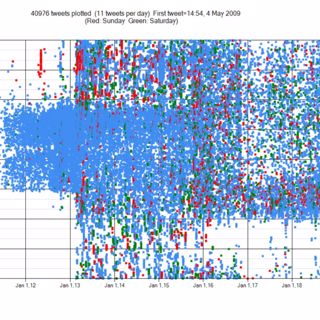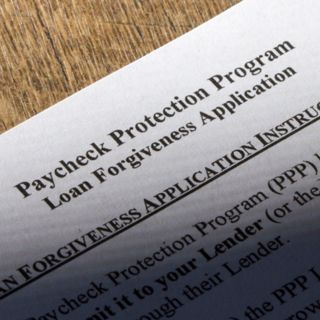
Section 230: Everything You Need to Know -- Tweets, Free Speech, Beyond
All about section 230 of the Communications Decency Act -- in what Wired senior writer (and host of the Get Wired podcast) described as "one of the clearest-but-still-nuanced explainers I've heard - worth listening to". So what does and doesn't it say? How does this law play out against broader questions and debates around platforms, content moderation, and free speech? This conversation between Mike Masnick (founder and editor in chief of Techdirt) and a16z editor in chief Sonal Chokshi was originally published on our show 16 Minutes, in the context of previous protests and presidential tweets (and an executive order then to prevent “online censorship”)-- but is exactly as relevant today... perhaps now more than ever.https://a16z.com/2020/05/31/16mins-section-230-communications-decency-act-content-moderation-free-speech-internet-past-present-future/image: presidential tweet activity/ Wikimedia Commons Stay Updated:Find a16z on XFind a16z on LinkedInListen to the a16z Podcast on SpotifyListen to the a16z Podcast on Apple PodcastsFollow our host: https://twitter.com/eriktorenberg Please note that the content here is for informational purposes only; should NOT be taken as legal, business, tax, or investment advice or be used to evaluate any investment or security; and is not directed at any investors or potential investors in any a16z fund. a16z and its affiliates may maintain investments in the companies discussed. For more details please see a16z.com/disclosures. Hosted by Simplecast, an AdsWizz company. See pcm.adswizz.com for information about our collection and use of personal data for advertising.
9 Tammi 202139min

Baumol's Cost Disease, in Healthcare... and Where We Go Next
If software’s eating the world -- and more specifically, bringing costs down and increasing productivity through entire industries -- why have some industries, like healthcare, been so resistant? And what could the future look like once technology really gets in? With a16z co-founder -- and author of the now nearly decade-old thesis of “software eating the world” -- Marc Andreessen, in conversation with a16z bio general partner Vijay Pande. This episode originally ran on our show Bio Eats World, but we’re sharing it here in the new year as it’s very relevant for ANYone interested in, well, the future of software eating the world;) https://a16z.com/2020/12/14/cost-disease-healthcare-baumol/ Stay Updated:Find a16z on XFind a16z on LinkedInListen to the a16z Podcast on SpotifyListen to the a16z Podcast on Apple PodcastsFollow our host: https://twitter.com/eriktorenberg Please note that the content here is for informational purposes only; should NOT be taken as legal, business, tax, or investment advice or be used to evaluate any investment or security; and is not directed at any investors or potential investors in any a16z fund. a16z and its affiliates may maintain investments in the companies discussed. For more details please see a16z.com/disclosures. Hosted by Simplecast, an AdsWizz company. See pcm.adswizz.com for information about our collection and use of personal data for advertising.
6 Tammi 202130min

Words of 2020! (and Metaphors, and Interfaces of the Year)
"In a year that left us speechless, 2020 has been filled with new words unlike any other”... so it's unprecedented that for the first time, the Oxford English Dictionary did NOT name a word of the year. But do we really need the dictionaries to tell us what our words of the year are? Especially if the approaches "Big Word" takes may be based on more lagging vs. leading indicators; after all, language is created and constructed as we go.And yet. People want the dictionary to give them permission of "tell me what the words are", observes internet linguist (and author of the NYT bestselling book Because Internet: Understanding the New Rules of Language) Gretchen McCulloch. No! We, the people, decide what the words are!! So in this special holiday, end-of-year episode, a16z Podcast showrunner Sonal Chokshi chats with McCulloch about the words of the year in and beyond Oxford's "Words of an Unprecedented Year" report -- and importantly, the tech shifts and cultural shifts behind them.From remote work portmanteaus to scientific discourse in a pandemic (for better and for worse) to social movements and more -- we take a whirlwind tour through the words of the year, exploring misplaced analogies, shifting metaphors, and even the evolution of interfaces. We dip into the settling of the "Zoomer" generation and "moonshots"; dive into the need for "third places" and parties; debate Dunbar numbers for conversations, and the trend of "proximity chat" -- and discuss the meta story of language, and of writing itself. The English language may have resulted from network effects involving the "loners" who introduce words, and the “leaders” who spread them; but writing is a technology that spreads with the tools, going well beyond medium/message, connecting us across time and place and online spaces. image: Andy Simmons / Flickr Stay Updated:Find a16z on XFind a16z on LinkedInListen to the a16z Podcast on SpotifyListen to the a16z Podcast on Apple PodcastsFollow our host: https://twitter.com/eriktorenberg Please note that the content here is for informational purposes only; should NOT be taken as legal, business, tax, or investment advice or be used to evaluate any investment or security; and is not directed at any investors or potential investors in any a16z fund. a16z and its affiliates may maintain investments in the companies discussed. For more details please see a16z.com/disclosures. Hosted by Simplecast, an AdsWizz company. See pcm.adswizz.com for information about our collection and use of personal data for advertising.
24 Joulu 202051min

The Machine That Made the Vaccine: Company, Platform, Innovation
In this special episode of Bio Eats World -- which aired right after the FDA authorized Moderna's mRNA vaccine for emergency use -- Moderna CEO Stephane Bancel tells the story of not just the vaccine’s development, but the machine that made the vaccine: the platform, the technology, and the moves behind the vaccine’s development.How does this new technology that uses mRNA work; why is this such a fundamental shift in the world of drug development; and where will this technology go next? https://a16z.com/2020/12/18/moderna-covid-vaccine-mrna-technology/ Stay Updated:Find a16z on XFind a16z on LinkedInListen to the a16z Podcast on SpotifyListen to the a16z Podcast on Apple PodcastsFollow our host: https://twitter.com/eriktorenberg Please note that the content here is for informational purposes only; should NOT be taken as legal, business, tax, or investment advice or be used to evaluate any investment or security; and is not directed at any investors or potential investors in any a16z fund. a16z and its affiliates may maintain investments in the companies discussed. For more details please see a16z.com/disclosures. Hosted by Simplecast, an AdsWizz company. See pcm.adswizz.com for information about our collection and use of personal data for advertising.
21 Joulu 202040min

The PPP Omnibus: Eminent Domain, Fraud, and Fintech
This episode features two relevant but previously recorded episodes, discussing the relevance of the Paycheck Protection Program (or PPP) from the Small Business Administration and the role of government stimulus/ pandemic relief for the economy as well as where tech comes in. It combines 2 separate episodes, beginning with one recorded much earlier this year (on our show 16 Minutes), which outlines a useful analogy of "eminent domain" for government-mandated shutdowns of certain businesses and technology considerations; and then is followed by an episode (recorded later this year) on preventing fraud and the role of fintech. Both episodes feature in common a16z general partner in fintech Alex Rampell, who also wrote about how Small Businesses Depend on the Stimulus Package, and The Stimulus Will Depend on Fintech, which you can find at: a16z.com/pandemicstimulus Stay Updated:Find a16z on XFind a16z on LinkedInListen to the a16z Podcast on SpotifyListen to the a16z Podcast on Apple PodcastsFollow our host: https://twitter.com/eriktorenberg Please note that the content here is for informational purposes only; should NOT be taken as legal, business, tax, or investment advice or be used to evaluate any investment or security; and is not directed at any investors or potential investors in any a16z fund. a16z and its affiliates may maintain investments in the companies discussed. For more details please see a16z.com/disclosures. Hosted by Simplecast, an AdsWizz company. See pcm.adswizz.com for information about our collection and use of personal data for advertising.
14 Joulu 202059min

The Holy Grail of Social + Fintech
The intersection of social and finance—as well as shifting attitudes around what we share about money online—have given way to an ambitious new wave of financial products.While revealing one’s financial information was once considered taboo, now people are more apt than ever to openly discuss money online, particularly Gen Z and millennials. That’s evident on both ends of the spectrum, whether people are bemoaning their crushing levels of student debt on Twitter and Instagram or bragging about their latest stock trades on WallStreetBets. The repercussions extend far beyond social media, fueling a wave of new social-fintech products like Public, Commonstock, and Doji, among others.In this conversation between fintech partner Anish Acharya, formerly a product manager at Credit Karma, consumer partner D’Arcy Coolican (who himself is a former founder in this space), and host Lauren Murrow, we discuss why the “holy grail” of social plus finance is both so challenging and, potentially, so rewarding. This episode was originally released last year and has been resurfaced as part of Social Strikes Back, a new series exploring the next generation of social networks and how they’re shaping the future of consumer tech. See more at a16z.com/social-strikes-back. Stay Updated:Find a16z on XFind a16z on LinkedInListen to the a16z Podcast on SpotifyListen to the a16z Podcast on Apple PodcastsFollow our host: https://twitter.com/eriktorenberg Please note that the content here is for informational purposes only; should NOT be taken as legal, business, tax, or investment advice or be used to evaluate any investment or security; and is not directed at any investors or potential investors in any a16z fund. a16z and its affiliates may maintain investments in the companies discussed. For more details please see a16z.com/disclosures. Hosted by Simplecast, an AdsWizz company. See pcm.adswizz.com for information about our collection and use of personal data for advertising.
7 Joulu 202024min

On Fear and Leadership: Product to Sales CTOs & CEOs
There's a few ontologies for describing the phases leaders -- and their startups -- go through, whether it's product-sales-etc. or pioneer to settler. In any case, as companies evolve, so must the leaders -- but can the same person transition across all these phases? When and when not; what are the qualities, criteria, and tradeoffs to be made?In this episode of the a16z Podcast, originally recorded as an internal hallway-style chat (pre pandemic!) a16z general partner Martin Casado, who co-founded but decided to remain CTO of Nicira -- and previously shared his own journey, lessons learned, and advice for founders about bringing in an external CEO and the question of "to CTO or not to CTO" -- and Armon Dadgar, co-founder (with Mitchell Hashimoto) and CTO of HashiCorp, chat with Sonal Chokshi about both managing their past psychology through these common questions and decisions. They also share their strategies on managing the specific tactics behind it all: Everything from the "dating" process of finding an external CEO to figuring out swim lanes; handling debates and decisions; who presents, who sells. And while the conversation is a brief glimpse into their longer personal journeys, there's lessons in it for startups and leaders of all kinds on the art of hiring and sales, managing credit and conflict, and more... Stay Updated:Find a16z on XFind a16z on LinkedInListen to the a16z Podcast on SpotifyListen to the a16z Podcast on Apple PodcastsFollow our host: https://twitter.com/eriktorenberg Please note that the content here is for informational purposes only; should NOT be taken as legal, business, tax, or investment advice or be used to evaluate any investment or security; and is not directed at any investors or potential investors in any a16z fund. a16z and its affiliates may maintain investments in the companies discussed. For more details please see a16z.com/disclosures. Hosted by Simplecast, an AdsWizz company. See pcm.adswizz.com for information about our collection and use of personal data for advertising.
4 Joulu 202042min

On Food As Medicine (A Holiday Snack)
What happens if we treat food as a medicine in the healthcare system: How, where, and who (pays)? What role can technology play in increasing access, distribution, and more? General partner Julie Yoo talks with the founder and former medical director of Geisinger Fresh Food Farmacy, Dr. Andrea Feinberg, and with the co-founder of food delivery start up Plated in this "holiday" cross-promo of our show Bio Eats World. Stay Updated:Find a16z on XFind a16z on LinkedInListen to the a16z Podcast on SpotifyListen to the a16z Podcast on Apple PodcastsFollow our host: https://twitter.com/eriktorenberg Please note that the content here is for informational purposes only; should NOT be taken as legal, business, tax, or investment advice or be used to evaluate any investment or security; and is not directed at any investors or potential investors in any a16z fund. a16z and its affiliates may maintain investments in the companies discussed. For more details please see a16z.com/disclosures. Hosted by Simplecast, an AdsWizz company. See pcm.adswizz.com for information about our collection and use of personal data for advertising.
26 Marras 202020min






















